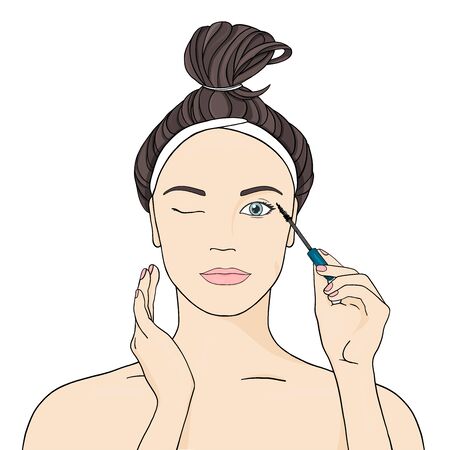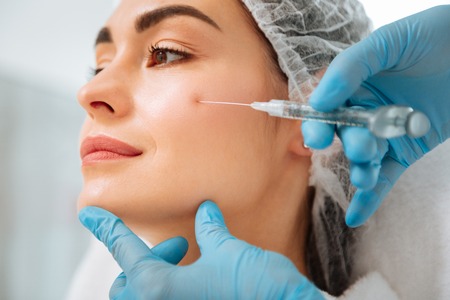Introduction to Celebrity Influence in Britain
In recent years, the British celebrity landscape has undergone a notable transformation, particularly in how public figures engage with cosmetic procedures. Unlike other regions where overt self-promotion is the norm, celebrities in Britain have historically navigated fame with a blend of modesty and subtlety. However, this cultural approach is evolving as social attitudes towards beauty and self-improvement shift. Today, British celebrities wield considerable influence over public perceptions of aesthetic treatments, shaping trends and normalising previously taboo subjects. Their ability to set examples—either through candid admissions or carefully curated brand partnerships—has made them central to the commercialisation of cosmetic procedures. This introductory exploration sets the stage for understanding how these unique dynamics between British celebrities and their audiences are driving significant changes within the cosmetic industry.
2. From Taboo to Trend: Cosmetic Procedures in the British Spotlight
Over the past decade, Britain has witnessed a marked transformation in its perception of cosmetic enhancements. What was once considered a closely guarded secret, spoken about in hushed tones or simply denied, has now emerged as a mainstream topic—fuelled largely by celebrity influence and evolving media narratives. This shift is not just cosmetic; it represents deeper cultural changes regarding body image, self-improvement, and personal branding.
Cultural Shifts: From Stigma to Acceptance
Historically, British culture valued modesty and discretion, with cosmetic procedures often associated with vanity or superficiality. However, attitudes have shifted significantly. Celebrities such as TV personalities and influencers have openly discussed their journeys with aesthetic treatments on national platforms, sparking more honest conversations in everyday life. These public admissions have helped normalise procedures like Botox, fillers, and even surgical interventions, moving them from the realm of taboo into accepted self-care practices.
Changing Attitudes in Numbers
| Year | % Britons Open to Cosmetic Enhancements | Celebrity Influence Mentioned (%) |
|---|---|---|
| 2010 | 21% | 10% |
| 2015 | 33% | 22% |
| 2023 | 48% | 39% |
This table illustrates the growing acceptance of cosmetic procedures among Britons over time, alongside an increase in those citing celebrity influence as a factor. The data reflects not only changing attitudes but also the powerful role celebrities play in shaping public opinion.
The Role of Media Narratives
British media outlets, once critical or mocking of cosmetic enhancements, now frequently publish stories celebrating positive outcomes or exploring procedures’ psychological benefits. Reality TV shows such as “Love Island” and magazines like “Grazia” regularly feature discussions about aesthetics without judgement. This shift in narrative has further destigmatised cosmetic procedures and presented them as part of contemporary British lifestyles.
The intersection of celebrity culture and evolving media narratives has fundamentally altered how cosmetic enhancements are viewed in Britain—laying the groundwork for commercial opportunities that celebrities are now actively seizing.

3. Building Brands: Celebrity Partnerships with UK Cosmetic Clinics
In recent years, celebrity partnerships with cosmetic clinics have become a defining trend in the British aesthetic industry. High-profile personalities are no longer just clients; they are actively collaborating with reputable clinics to endorse, launch, and promote a wide range of cosmetic procedures and products. This synergy between celebrities and clinics is fundamentally transforming how brands are built and perceived in the UK market.
Endorsements that Drive Consumer Trust
Celebrity endorsements carry significant weight in Britain, where public figures are often seen as tastemakers. When a well-known personality openly discusses their positive experiences with a clinic or procedure—whether through social media, interviews, or dedicated campaigns—it boosts consumer confidence and helps normalise treatments that were once considered taboo. For example, when television personalities or pop culture icons reveal their use of non-invasive facial treatments, there is often a noticeable uptick in bookings for those specific services.
Launching Signature Procedures and Products
Some celebrities have taken their partnerships further by co-developing signature procedures or exclusive product lines with UK clinics. These collaborations leverage the celebrity’s personal brand and following while offering clinics a unique selling proposition. The resulting treatments—sometimes branded with the celebrity’s name—often receive substantial media coverage, driving both credibility and curiosity among potential clients.
Influencer Marketing Meets Medical Aesthetics
The line between influencer marketing and medical aesthetics continues to blur in Britain. Clinics frequently invite celebrities to events or treatment launches, capitalising on their social reach for instant publicity. Instagram stories and YouTube vlogs featuring behind-the-scenes looks at cosmetic procedures are now commonplace. This approach not only demystifies the process but also creates an aspirational narrative around self-improvement, directly appealing to younger demographics who value transparency and relatability.
Overall, these strategic collaborations are more than just marketing gimmicks; they are reshaping the commercial landscape of cosmetic procedures in the UK. By aligning themselves with trusted personalities, clinics can build stronger brands while making aesthetic enhancements more accessible and socially accepted across Britain.
4. Social Media and the British Consumer
In the last decade, social media has become a powerful force in shaping perceptions of beauty and self-image among British consumers. Platforms such as Instagram, TikTok, and YouTube are not only spaces for sharing personal stories but also serve as vibrant marketplaces where cosmetic procedures are showcased, discussed, and promoted. This digital landscape has allowed celebrities to connect directly with their followers, blurring the lines between personal endorsement and commercial enterprise. As a result, cosmetic interventions that were once considered niche or even taboo are now woven into everyday conversation.
The Influence of British Social Media Platforms
British social media platforms have played a significant role in normalising cosmetic procedures. Influencers and celebrities frequently post about their experiences with non-surgical treatments such as fillers, Botox, and skin rejuvenation. These posts are often accompanied by discount codes or partnerships with clinics, making cosmetic enhancements more accessible—and arguably more appealing—to a wider audience. The language used is often casual and approachable, reducing stigma and positioning these interventions as routine self-care rather than drastic measures.
Celebrity Endorsements and Consumer Trust
Trust plays a pivotal role in consumer decisions regarding cosmetic procedures. When well-known personalities openly discuss their treatments on British social media, it fosters an environment of transparency and relatability. Consumers tend to trust recommendations from figures they admire or feel connected to online. This trust is further reinforced when influencers share detailed “before and after” journeys, demystifying the process and providing reassurance about safety and results.
Key Factors Influencing the British Cosmetic Procedure Market via Social Media
| Factor | Description | Impact on Consumers |
|---|---|---|
| Influencer Partnerships | Collaborations with clinics or brands to promote treatments | Increased visibility and perceived credibility of procedures |
| User-Generated Content | Authentic posts from everyday users sharing their experiences | Normalisation of cosmetic interventions within peer groups |
| Educational Content | Tutorials, Q&As, and behind-the-scenes insights into procedures | Reduced anxiety and improved understanding among potential clients |
| Cultural Relevance | Content tailored to British humour, trends, and sensibilities | Stronger connection with local audiences; improved engagement rates |
| Accessibility of Offers | Discounts, competitions, or exclusive deals via social channels | Lowered financial barriers for first-time consumers |
Navigating Authenticity vs Commercialisation
The interplay between authenticity and commercialisation remains a central issue. While many British influencers are transparent about paid partnerships or gifted treatments, there is ongoing debate about the ethical responsibilities they hold in promoting medical interventions. Regulatory bodies such as the ASA (Advertising Standards Authority) provide guidelines on advertising cosmetic procedures; however, enforcement can be inconsistent. As this dynamic evolves, consumers are increasingly savvy—demanding honest disclosure while still being influenced by the allure of celebrity-endorsed transformations.
5. Regulatory and Ethical Conversations
As the British cosmetic industry grows increasingly intertwined with celebrity culture, regulatory and ethical concerns are coming sharply into focus. The UK has established specific regulations to govern how cosmetic procedures are advertised and delivered, aiming to protect consumers from misleading claims and unsafe practices. Organisations such as the Advertising Standards Authority (ASA) play a central role in monitoring promotional content, ensuring that advertisements for cosmetic interventions do not exaggerate results or target vulnerable groups.
Advertising Standards in the UK
Celebrity endorsements of cosmetic treatments must adhere strictly to the ASA’s guidelines. This includes explicit requirements for transparency—paid partnerships and sponsorships need to be clearly declared, and any before-and-after imagery used in marketing must be accurate and unaltered. There have been several high-profile cases where influencers and celebrities faced censure for failing to disclose commercial arrangements or for making unsubstantiated claims about products or procedures.
Transparency and Informed Consent
A key issue within the current debate revolves around transparency. The public is increasingly demanding openness about what celebrities have actually undergone and whether their appearance is genuinely a result of the promoted procedure. This demand extends to informed consent—both in the treatment room and on social media—where viewers should be made aware of potential risks, limitations, and recovery times associated with cosmetic procedures.
Safety and Age-Appropriate Marketing
Concerns about safety are ever-present, particularly given the rise in young people seeking cosmetic enhancements after seeing their favourite celebrities’ transformations online. The UK government has responded with legislation such as the Botulinum Toxin and Cosmetic Fillers (Children) Act 2021, which bans under-18s from receiving certain cosmetic treatments. Furthermore, clinics are required to ensure robust safeguarding protocols, while advertisers must avoid targeting minors or glamorising invasive treatments as risk-free or essential for self-worth.
The ongoing conversation about regulation and ethics is shaping how brands, celebrities, and practitioners operate in Britain. With consumer protection at the forefront, there is a shared responsibility across the industry to prioritise honesty, safety, and age-appropriate messaging, fostering a more trustworthy environment for those considering cosmetic procedures.
6. Impact and Implications for British Society
The celebrity-led commercialisation of cosmetic procedures has left a significant imprint on British society, transforming not just the aesthetics industry, but also shaping perceptions of beauty, body image, and consumer behaviour. As well-known personalities openly discuss their own enhancements or endorse specific clinics, these acts normalise what was once considered taboo, making cosmetic interventions more socially acceptable across diverse age groups.
Shifting Standards of Beauty
There is no denying that celebrities set trends. Their involvement in branding and promoting cosmetic procedures has contributed to a shift in what is considered ‘normal’ or ‘aspirational’ appearance in Britain. The result is an environment where flawless skin, sculpted features, and youthful looks are often presented as attainable goals, fuelling both admiration and pressure among the general public. For many, this recalibration of beauty standards can lead to increased self-scrutiny and a desire to emulate celebrity ideals.
Consumer Behaviour: Desire and Demand
With celebrities acting as brand ambassadors for specific treatments or clinics, the decision-making process for consumers has become increasingly influenced by personality-driven marketing rather than purely medical advice. Social media further amplifies these messages, with followers eager to replicate their favourite influencer’s aesthetic choices. This dynamic has led to a surge in demand for non-surgical enhancements as well as surgical interventions, changing the business landscape of British cosmetic services.
Cultural Norms and Long-term Effects
While the accessibility and visibility of cosmetic procedures have reduced stigma and opened up conversations about personal choice, there are broader cultural implications worth considering. The prioritisation of certain looks may inadvertently marginalise those who do not conform to these ideals, potentially intensifying issues related to self-esteem and mental health. Additionally, the commodification of appearance risks reinforcing the idea that value is closely tied to physical attributes—a notion that runs counter to long-standing British values of individuality and substance over style.
In conclusion, the branding efforts by celebrities around cosmetic procedures are reshaping not only how such services are marketed and consumed but also how Britons perceive themselves and each other. As this trend continues to evolve, it will be important for stakeholders—clinicians, regulators, influencers, and the public—to engage critically with these changes to foster a healthier relationship with beauty standards in contemporary Britain.


